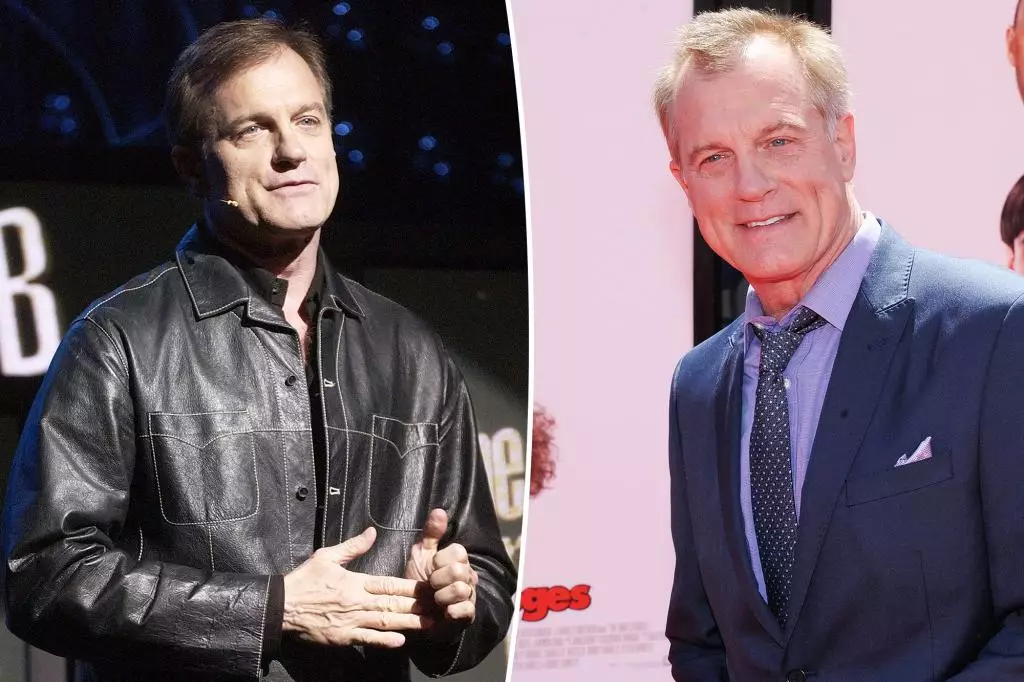Stephen Collins, once a household name thanks to his role as the morally grounded Reverend Eric Camden in the beloved family drama “7th Heaven,” has become a figure shrouded in controversy. His past transgressions are not merely footnotes in his biography; they are gaping wounds that have marred his legacy. At age 77, Collins allegedly finds solace with Jenny Nagel, a woman who is a significant 40 years his junior and openly identifies as a former “superfan.” This relationship raises not just eyebrows but alarms about the dynamic between fame, power, and the potential for predatory behavior.
Collins’ relationship with Nagel was thrust into the spotlight in Investigation Discovery’s special, “Hollywood Demons,” which attempts to peel back the layers of his troubled past. It’s compelling—and unnerving—that in 2014, Collins confessed to having sexually abused three underage girls over decades yet now appears to have moved on with his life with someone eager to overlook his sordid history. It begs the question: Can an individual ever truly escape their past, especially when it involves such serious and reprehensible actions?
The Age Gap and Its Implications
The glaring 40-year age difference between Collins and Nagel indicates much more than a romantic relationship; it raises crucial questions about the dynamics of power and manipulation. Dr. Drew Pinsky, featured in the documentary, expressed his discomfort with the relationship, emphasizing the significant ramifications of Collins’ past. His comment, “Let’s hope he can commit to this woman and not perpetrate on others,” reveals a palpable skepticism that many might feel. It underscores the uncomfortable reality that a predator may never truly transform, and the specter of his past looms large.
The relationship hype surrounding Collins and Nagel brings forth memories not only of his triumphs on “7th Heaven” but also of the darker currents of betrayal and regret that lurk beneath the surface of Hollywood’s glitzy allure. It is not uncommon for troubled personalities to seek sanctuary in younger companions—perhaps out of desire for validation, or an illusion of rejuvenation. As a society, we ought to scrutinize whether such relationships are indeed partnerships or veiled imbalances of power.
A Tragic Denial and Complicated Dynamics
In a disquieting twist, the documentary reveals that Collins chose not to participate, which would have provided him an opportunity to address the public’s murky perceptions surrounding his past. This absence is telling; it indicates not just shame but possibly a refusal to confront the consequences of his actions. With nearly everyone approached for the documentary opting out, it reinforces the notion that the majority hold him in a grave light. Only other men participated in discussing their experiences with Collins, further isolating him and heightening the narrative of his alleged predatory behavior.
Since their marriage in 2019, the couple has been living in relative seclusion in Fairfield, Iowa, where they pursue shared interests like transcendental meditation. However, these mundane details stand in stark contrast to the explosive nature of Collins’ prior admissions. While Nagel may have initially been a supportive admirer, does her continued presence in Collins’ life indicate complicity or innocence in underestimating the gravity of his past?
The Illusion of Redemption
The marketing of Collins as a reformed individual strikes a discordant note in light of his admissions. While we long for stories of redemption, his past actions cannot be so easily swept under a rug. Collins’ statements about regret feel hollow in comparison to the harm he inflicted on vulnerable individuals, casting a long shadow over any claim to moral commendability. His marriage to a superfan might be read as foolishly optimistic, but it also has the ominous undertones of history repeating itself, perhaps enabled by a lack of due scrutiny.
Ultimately, the relationship between Stephen Collins and Jenny Nagel stands at an intricate intersection of adulation, avoidance, and complex power dynamics. As Collins navigates his later years with a partner who is willing to sidestep the red flags, society must remain vigilant about overlooking deeper issues indicative of celebrity culture. The challenges of reconciling admiration with accountability tasks us in our ongoing discourse about fame, power, and the often-unconscionable realities that can lurk behind the facade of stardom.

